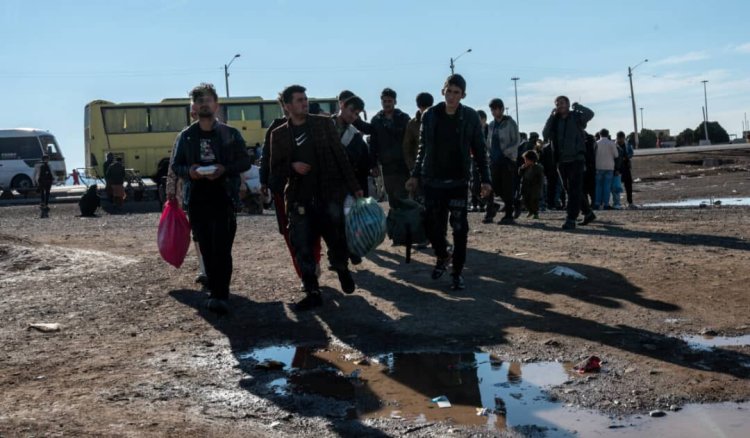Migration Through Smuggling: "My Brother Died of Severe Thirst"

Amrullah, a 30-year-old resident of Laghman Province, left for Iran two years ago through smuggling routes, accompanied by his younger brother and several fellow villagers, in search of work. Nearly two months ago, however, he was forcibly deported back to Afghanistan by Iranian police.
He explains that due to economic hardship, joblessness, and growing pressure at home, his friends encouraged him to contact a smuggler and attempt the dangerous journey to Iran.
Amrullah first traveled to Kabul and then, under the guidance of the smuggler, continued toward the mountainous regions of Nimroz Province. He recalls that nearly 150 Afghans were traveling along the same route.
Tragically, during the journey, his younger brother, Hamidullah, died of extreme thirst before they could reach safety.
Amrullah recounts:
"We were three brothers living in the same household in our village. I had decided to go to Iran, but my younger brother Hamidullah insisted on coming with me. I tried to stop him, but he wouldn’t listen. When we crossed into Iranian territory, there was no water available, and my brother died of thirst. With the help of the smugglers, I returned to Afghanistan, terrified and carrying my brother’s body. But four months later, I had no choice but to attempt the journey again—life here had become unbearable."
He describes the smuggling routes as a gamble with death and says that traffickers in Iran and Pakistan are closely coordinated. According to him, migrants heading toward Pakistan are sold in Iran, and those heading to Iran are sold in Pakistan.
Amrullah adds that Afghan migrants in Iran are subjected to the most grueling forms of labor and are regularly met with mistreatment and humiliation. After returning to Iran for a second time, he recalls being suddenly arrested by Iranian police along with 20 other Afghans and forcibly deported back to Afghanistan.
He explains that many Afghan migrants are sent to Iranian prisons, and their fate often remains unknown. Amrullah deeply regrets going to Iran and says that those who travel via smuggling routes are no longer viewed as human beings.
He said:
"Taking smuggling routes is like playing with death. Human traffickers place no value on the lives of the people they move. I regret going, but I had no other choice. Life in Afghanistan is incredibly hard, and every day, the challenges just keep growing."
He emphasizes that the suffering endured along smuggling routes, separation from family, and the constant threat of death are not worth any possible benefit—but Afghan youth still pursue this path out of sheer desperation.
Amrullah now pushes a cart in Mehtarlam, the capital of Laghman Province. He says his family’s financial difficulties continue to worsen. Although nearly two months have passed since his return from Iran, no one has asked who he is or what he’s going through.
He adds:
"If young people had access to job opportunities in their own country, they would never risk their lives by taking dangerous, illegal routes to neighboring or distant countries. But everything happens out of necessity. I push a cart now, but it’s not enough to support my family. I’m being forced to consider going to Pakistan for work next."
According to Amrullah, it is the lack of employment and deepening economic hardship that push many Afghan youth to risk their lives through irregular migration.
Recent reports show a rising trend in the forced return of Afghan migrants from Iran and Pakistan, especially those who had entered through irregular or undocumented means.
This comes as the Iranian government has once again issued a deadline for the expulsion of undocumented Afghan migrants from its territory.
Nader Yar-Ahmadi, General Director of the Iranian Ministry of Interior’s Department for Foreign Nationals and Immigrants, told ISNA that beginning in the solar year 1404 (March 2025), all undocumented Afghan asylum seekers will be deported. He added that only six specific categories of Afghan nationals will be allowed to remain in the country thereafter.
